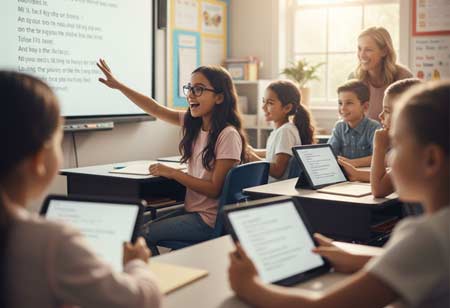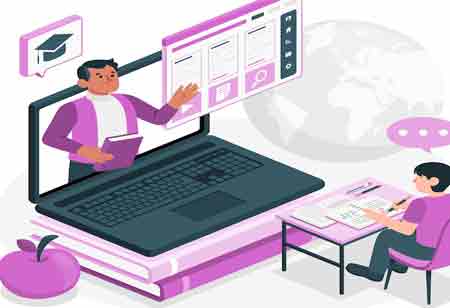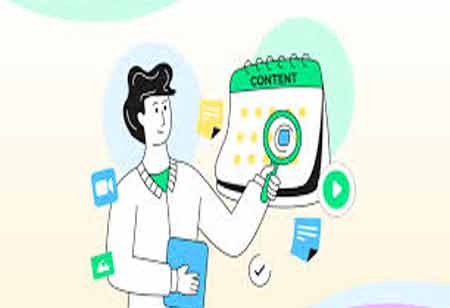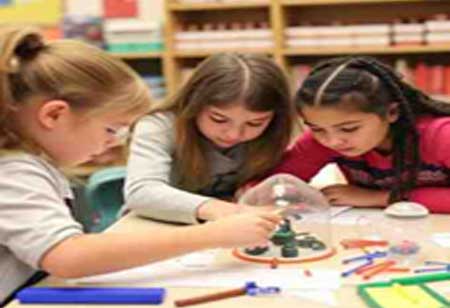THANK YOU FOR SUBSCRIBING
Be first to read the latest tech news, Industry Leader's Insights, and CIO interviews of medium and large enterprises exclusively from Education Technology Insights
Role of Creativity and Innovation in Tourism Education
For over three decades, Julia Calver has pioneered collaborative learning across operational, strategic and policy realms.
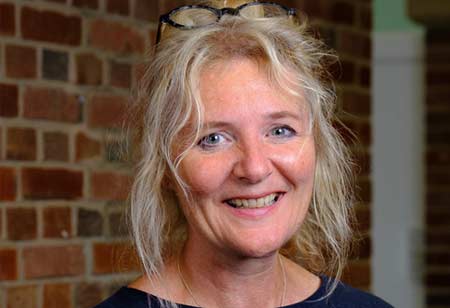
By
Education Technology Insights | Thursday, May 16, 2024
Stay ahead of the industry with exclusive feature stories on the top companies, expert insights and the latest news delivered straight to your inbox. Subscribe today.
For over three decades, Julia Calver has pioneered collaborative learning across operational, strategic and policy realms. With a focus on higher education for the past twelve years, she’s currently a Course Director in the School of Events, Tourism and Hospitality Management at Leeds Beckett University. There, she designs modules and courses, enriches student experiences, and participates in creativity-driven networks and initiatives nationally and internationally. Calver’s extensive background spans from curating festivals to serving as Regional Director at Arts Council England and spearheading community-driven circular tourism arts programs. Her consultancy and research explore event creativity, inclusivity and collaboration.
Through this article, Calver discusses how connecting coursework to organizations through project-based assessments, students gain exposure to the complexity of issues and develop talents to lead in their future careers.
What are some of the challenges that you have seen in the educational tourism space and how have they impacted the field?
Within the higher education sector, developing and ensuring quality creative tourism, hospitality and events experiences face challenges. Politically, UK universities struggle with numerous issues regarding financing, financial modeling, structures and required reporting measures.
A core challenge is ensuring value for money as students attend courses and gain experiences that transition them into employment and the business world. These challenges should drive institutions to offer relevant, creative, innovative and forward-thinking programs that equip students to become future industry leaders.
Optimizing the higher education experience within creative tourism, hospitality and events requires a relevant, innovative and forward-thinking curriculum. Incorporating substantive industry engagement before graduation ensures students build pragmatic professional understanding and practical experiences. This develops an appreciation for the complexities of these dynamic sectors. The goal is to facilitate a seamless workforce transition for graduates, equipping them to strategically lead, evolve and drive transformation.
Can you specify some trends or technologies that are transforming the educational tourism space and how they are benefiting both students and educators?
One key trend that is ubiquitous is the advancement of AI and generative tools with artificial intelligence. There is a mixed reaction within the sector towards embracing these technologies. Our institution sees an opportunity for students to build critical thinking and creativity through engaging with these tools. We must remember that humans have previously created and curated everything in AI. These tools simply regurgitate existing information. We need to ensure our pedagogy equips students to understand AI’s capabilities while also developing skills to manage, manipulate and build upon what AI produces to spark new, innovative ideas. Students should not be passive recipients of AI but active curators and creators who can think critically about its application.
“We need to ensure our pedagogy equips students to understand AI’s capabilities while also developing skills to manage, manipulate and build upon what AI produces to spark new, innovative ideas.”
Another major trend is students’ eagerness to deeply engage in travel and real-world experiences after COVID restrictions. We have extended our classroom to the industry, situating learning directly in relevant professional environments, including opportunities for international exposure. This allows students to maximize their applied learning, making up for perceived gaps and lost opportunities these past few years. By embedding coursework into the field, we enable students to immerse themselves in rich hands-on training.
What are some of the recent projects or initiatives that you have led recently?
We have implemented new forms of assessment to develop skills beyond what AI tools can provide. Rather than solely essays and reports where students may be tempted to let AI do the work, we incorporate more pitches, verbal discussions and collaborative projects with real companies. Recently, student teams consulted for organizations like Harewood House, Cafe Nero and Cedar Hotels–analyzing real issues and pitching innovative ideas. This focuses on problem-solving, creativity, critical thinking, negotiation and communication talents.
By working with entrepreneurs and assessing student work through presentations, we evaluate their ability to become both consumers and creators of knowledge. This process focuses less on what information they have and more on how they develop, analyze and apply ideas. We assess innovation and creativity through open-ended group projects rather than rigid essays. Students must collaborate, use creative skills and think critically when co-developing solutions.
The goal is to build skills AI cannot replicate like verbal communication, creative collaboration, innovation, entrepreneurship and real-world consultancy. By connecting coursework to organizations through project-based assessments, students gain exposure to the complexity of issues and develop talents to lead in their future careers.
How do you envision the future of educational tourism and what advancements would you like to see in it?
On a global scale, I would like to see broader recognition of the merit these types of courses bring within higher education and the business world. More than just status, the critical thinking, creativity, innovation and sense of community cultivated in programs like ours can equip graduates to solve complex global issues.
As we adapt to relentless technological change, a key role of higher education is to create an inclusive culture of life-long learning. We must embrace new tools while empowering students to critically evaluate how these tools are shaping society. Our graduates need the discernment to weigh ethical considerations and make judgments that drive progress.
I envision higher education that enables graduates to understand advancements, assess their societal impacts and manipulate and apply technological innovations for the public good. With creativity and critical thinking at the helm, they can lead communities and industries to be progressive, ethical and inspired by innovation.
What advice would you offer to other leaders in the education sector based on your extensive experience?
We can sometimes focus too narrowly on developing innovative teaching strategies without considering the actual learning experience for students. The priority should be crafting an innovative learning journey for diverse students. This requires an educational partnership where instructors and students co-create the path forward based on understanding students’ backgrounds and learning needs.
As educators, our role is to facilitate experiences where students embrace their own developmental process. This means getting to know our learners so we can empower them in their journey of acquiring knowledge, collaborating with others, thinking critically and solving problems. The goal is to spark their creativity, engage them as partners, and ensure that technologies and teaching methods directly enable their learning rather than distract them from it. The learning experience itself is what matters most - not using fancy tools for their own sake. By putting student journeys first, we can cultivate the next generation of leaders who can leverage community and critical thinking to create innovative solutions.



